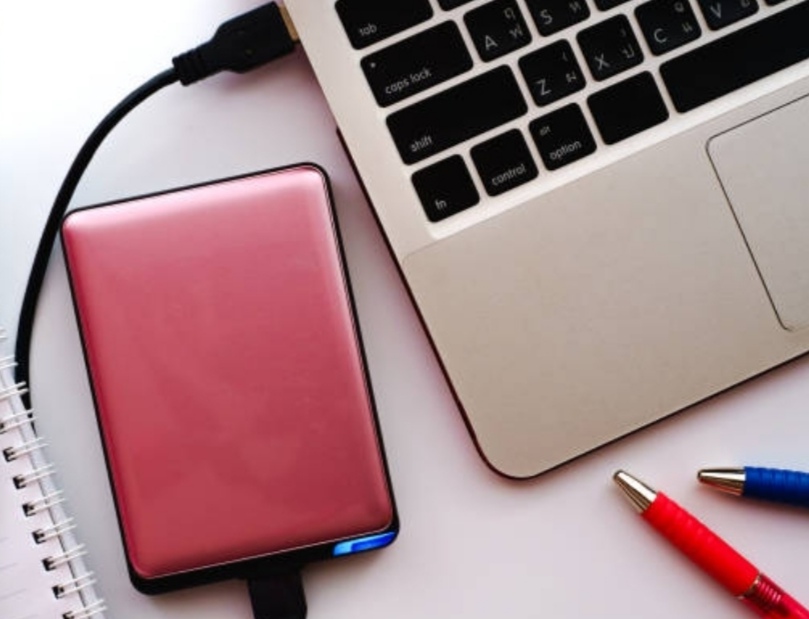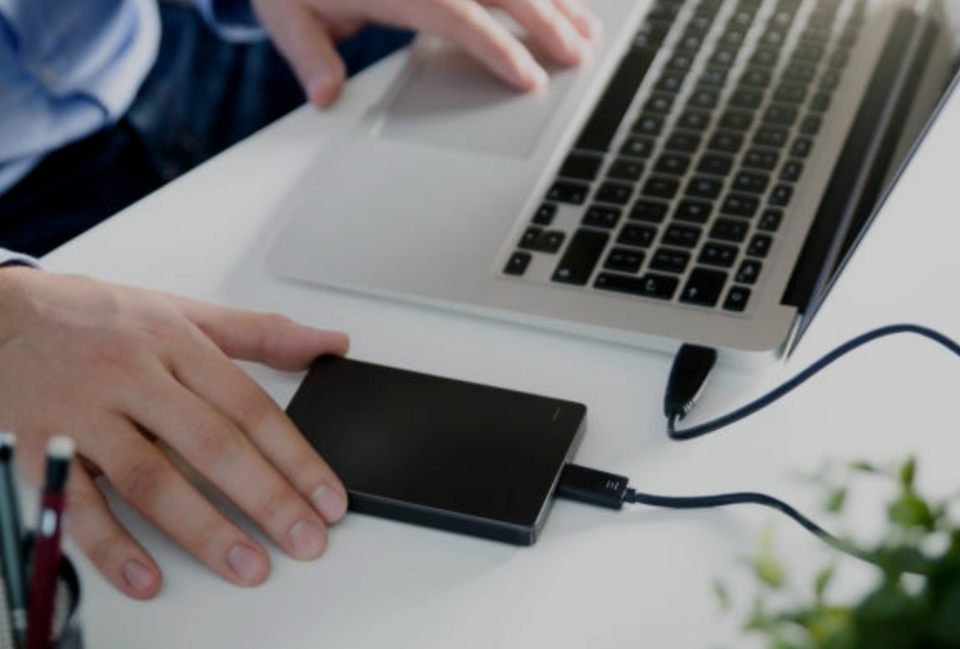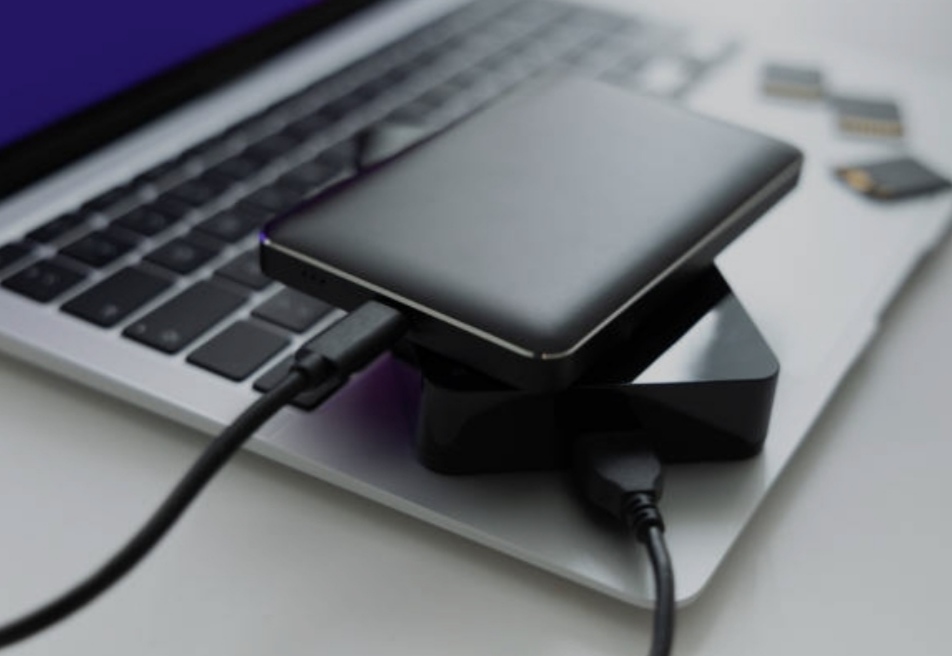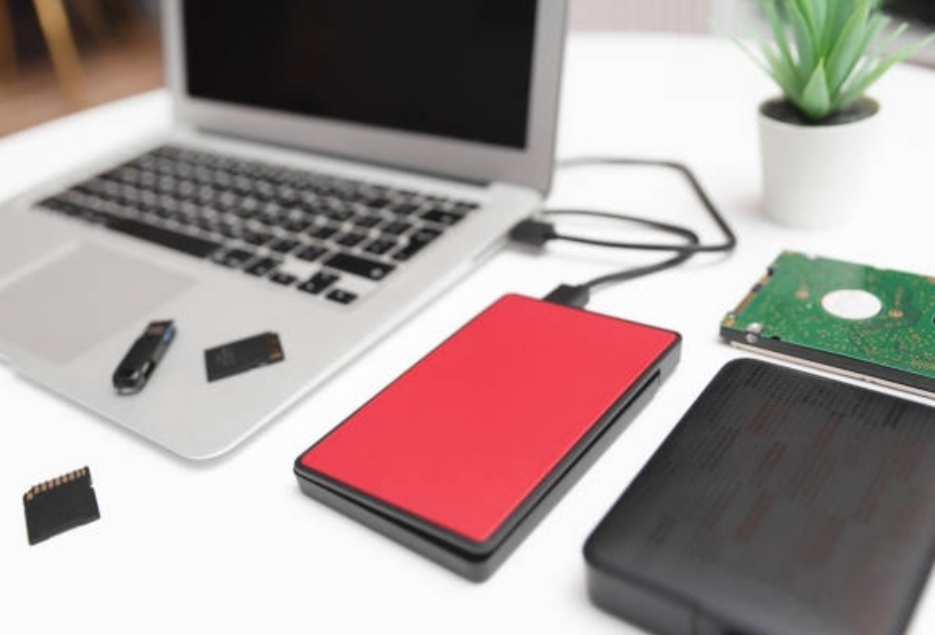External Hard Drive for Backup and Storage
In today’s digital era, the demand for reliable and portable storage solutions has skyrocketed.
From safeguarding your personal photos to storing massive project files, external hard drives have become an essential tool for individuals and professionals alike.
Choosing the best external hard drives can be overwhelming with the countless options available in the market.
Each drive boasts unique features, such as high-speed performance, durability, portability, or massive storage capacity.
But how do you determine which one is the perfect fit for your needs?

This comprehensive guide will walk you through everything you need to know about external hard drives.
We’ll explore the top features to look for, tips for maintaining drive health, and best practices for data backup.
Whether you’re a gamer seeking more space for your favorite titles, a photographer managing a growing portfolio, or someone looking for a secure way to store critical documents, we’ve got you covered.
Why This Guide Matters
Understanding the different types of external hard drives—HDDs, SSDs, and portable drives—is crucial to making an informed decision.
Each option offers unique advantages, and selecting the right one will save you time, money, and potential headaches in the future.
With so much outdated and incomplete content online, we’ve made it our mission to deliver the most up-to-date, actionable, and engaging information on this topic.
This article is not just another list; it’s your ultimate resource for understanding, purchasing, and maintaining the best external hard drives.
What You’ll Learn
- Key Features of External Hard Drives: From speed and capacity to compatibility and design, we’ll break down the critical aspects to consider.
- Top Recommendations for 2025: Discover our curated list of the best-performing external hard drives for various needs and budgets.
- Maintenance Tips: Learn how to keep your drive in top condition and extend its lifespan.
Whether you’re a tech enthusiast or a first-time buyer, this guide will empower you to make the right choice.
By the end of this article, you’ll not only know which drive to buy but also how to use and maintain it effectively.
Let’s dive into the world of external hard drives and help you find the perfect solution to your storage needs.
Don’t miss our list of the best external hard drives, which combines expert insights with hands-on testing to bring you top-notch recommendations.
Your journey to better, safer, and more efficient storage starts here!
Understanding External Hard Drives

What Is an External Hard Drive?
An external hard drive is a portable storage device that connects to a computer or other compatible devices via USB, Thunderbolt, or wireless connections.
It provides additional space to store data, including photos, videos, documents, and backups.
These devices are versatile and widely used for expanding storage, safeguarding critical files, and enabling easy data transfer between devices.
Unlike internal hard drives, external hard drives are portable, allowing users to carry their essential data wherever they go.
If you’re looking for the best external hard drives to store and protect your valuable files, external hard drives are an excellent choice due to their convenience and reliability.
Types of External Storage Devices
When exploring the best external hard drives, it’s essential to understand the various types available. Each type has its unique features and benefits.
Hard Disk Drives (HDDs)
HDDs are traditional external storage devices that use spinning magnetic disks to read and write data.
They are cost-effective and offer massive storage capacities, often exceeding 8TB.
HDDs are ideal for users who need an affordable solution for storing large amounts of data, such as videos and backups.
However, they are slower than newer storage technologies and more prone to damage from physical impact due to moving parts.
Solid State Drives (SSDs)
SSDs are a modern alternative that uses flash memory instead of moving parts, making them significantly faster than HDDs.
They deliver exceptional performance, enabling quicker file transfers and reduced loading times.
SSDs are more durable than HDDs, as they lack spinning disks, making them resistant to physical shocks.
While they are more expensive per GB, SSDs are the preferred choice for users prioritizing speed and reliability.
For the best external hard drives for speed and portability, SSDs are unmatched.
Network Attached Storage (NAS)
NAS devices are advanced storage systems designed to connect to a network, allowing multiple users to access and share data simultaneously.
They are perfect for businesses and households that need centralized data storage and remote access.
NAS often includes features like RAID configurations for data redundancy, ensuring additional protection for critical files.
Though more expensive than traditional external drives, NAS offers unmatched flexibility for collaborative environments.
Hybrid Drives (HDD+SSD)
Hybrid drives combine the best features of HDDs and SSDs, offering a balance of speed and capacity.
They use SSD technology for frequently accessed files and HDD technology for bulk storage.
These drives are suitable for users who want faster performance without sacrificing large storage space.
Hybrid drives are an excellent middle-ground solution for those seeking the [best external hard drives for versatility].
Wireless External Hard Drives
Wireless drives eliminate the need for cables, connecting to devices via Wi-Fi or Bluetooth.
They are perfect for users who need a clutter-free setup and remote access to their data.
These drives often include built-in batteries, making them highly portable for travel.
Wireless drives are an excellent choice for tech-savvy users looking for modern and convenient storage options.
Key Takeaways on External Drive Types
Choosing the [best external hard drive] depends on your specific needs.
- Go for an HDD if you need an affordable option for storing large files.
- Opt for an SSD if speed and durability are your priorities.
- Consider NAS for collaborative or remote storage solutions.
- Hybrid drives offer a balance of speed and capacity.
- Wireless drives provide a modern, cable-free experience.
Understanding these options will help you make an informed decision that aligns with your budget and storage requirements.
Ready to find the perfect external drive? Check out our top recommendations for the best external hard drives on the market!
Key Factors to Consider When Choosing an External Hard Drive

Storage Capacity
One of the most important considerations when selecting the best external hard drives is storage capacity.
- If you primarily store documents and photos, a drive with 500GB to 1TB may suffice.
- For video editing, gaming, or large backups, consider drives offering 2TB, 4TB, or even higher capacities.
Think about your future needs too. A slightly larger drive now may save you from upgrading later.
Pro Tip: Always leave at least 10-15% of your external drive’s capacity free to ensure optimal performance.
Speed and Performance
Speed plays a critical role, especially when transferring large files or performing backups.
- HDDs typically offer speeds of 100-200 MB/s, making them suitable for general storage.
- SSDs, on the other hand, can reach speeds up to 1,000 MB/s or more, drastically reducing file transfer times.
Sequential vs. Random Speed: SSDs excel in both, making them ideal for multitasking and quick access.
If you need a balance between cost and performance, hybrid drives can offer a reasonable compromise.
For those searching for the [best external hard drives for performance], SSDs are highly recommended.
Connectivity Options
Your external hard drive’s connectivity affects its compatibility and speed.
- USB Versions: Most drives support USB 3.0 or USB 3.1, which are fast and widely compatible. USB-C offers even faster speeds and reversible ports, making it future-proof.
- Thunderbolt Ports: Ideal for professionals needing ultra-fast performance, Thunderbolt drives provide speeds up to 40Gbps but are often pricier.
Check your device’s ports before purchasing. Choosing the right connectivity ensures you maximize your drive’s potential.
Portability and Durability
If you plan to use your drive on the go, portability is crucial.
- Look for lightweight models that easily fit into a bag or pocket.
- Ensure the build quality is robust, especially if the drive will frequently travel.
For maximum durability, consider drives with shockproof or water-resistant features, as they can withstand accidental drops or spills.
Rugged external drives are an excellent choice for travelers or outdoor professionals.
Compatibility with Devices
Ensure your external drive is compatible with your devices and operating systems.
- For Windows users, NTFS formatting is common.
- Mac users often require HFS+ or APFS formatting.
- For cross-platform usage, consider a drive formatted with exFAT.
Some drives come pre-configured, while others may require reformatting. Always check the manufacturer’s specifications to avoid compatibility issues.
Security Features
Security is vital if you store sensitive data.
- Many of the [best external hard drives] include hardware encryption for added protection.
- Some models offer password protection to prevent unauthorized access.
- Advanced options may include biometric authentication or built-in antivirus protection.
For businesses or individuals prioritizing data security, these features are a must-have.
Additional Tips for Choosing the Best External Hard Drive
- Warranty: Opt for brands offering longer warranties to safeguard your investment.
- Power Source: Portable drives are typically powered via USB, while larger desktop models may require an external power source.
- Backup Software: Drives bundled with backup software can simplify data management.
- Price-to-Performance Ratio: Balance your budget with the features you need.
Ready to find your ideal storage solution? Discover our expertly curated list of the [best external hard drives] to secure your data today!
Top External Hard Drive Recommendations for 2025

Best Overall External Hard Drive
When it comes to the [best external hard drives] overall, balance is key. You want a drive that excels in performance, capacity, durability, and price.
Recommendation: Western Digital My Passport
- Storage Options: Available in 1TB to 5TB capacities, making it suitable for both personal and professional use.
- Speed: Equipped with USB 3.0, offering fast transfer rates up to 5Gbps.
- Portability: Compact design with a lightweight build for easy mobility.
- Software: Comes with WD Backup software and password protection, ensuring your data is safe.
- Compatibility: Works seamlessly with both Windows and macOS.
Why It’s the Best: Its combination of affordable pricing, reliable performance, and extra security features make it a top pick for most users.
Best Budget-Friendly Option
If affordability is your top priority, the [best external hard drives] in the budget category don’t skimp on quality.
Recommendation: Seagate Expansion Portable Drive
- Price Point: One of the most affordable drives on the market without compromising essential features.
- Storage: Offers up to 4TB of space, ideal for everyday use.
- Speed: Features USB 3.0 for quick and reliable transfers.
- Plug-and-Play: Pre-formatted for Windows, with simple setup and no additional software required.
What Sets It Apart: Despite its low cost, this drive provides a dependable backup solution, making it perfect for students or casual users.
Pro Tip: If you’re a macOS user, you’ll need to reformat this drive, but the process is quick and straightforward.
Best High-Capacity Drive
For those handling massive files like 4K videos or extensive backups, storage capacity is everything.
Recommendation: LaCie d2 Professional
- Capacity: Available in sizes up to 18TB, catering to the most demanding storage needs.
- Speed: Features USB-C and Thunderbolt 3 connectivity for blazing-fast transfer rates.
- Build Quality: Enclosed in an aluminum unibody casing for heat resistance and durability.
- Extras: Comes with a five-year warranty and one month of Adobe Creative Cloud access.
Who It’s For: Content creators, video editors, and professionals who need both capacity and speed.
Real Fact: The LaCie d2 Professional is often used in creative industries due to its unmatched reliability and performance.
Best Portable SSD
For users prioritizing speed and portability, SSDs are unbeatable.
Recommendation: Samsung T7 Portable SSD
- Speed: Read and write speeds up to 1,050MB/s, making it one of the fastest drives available.
- Design: Slim and lightweight, it’s smaller than most smartphones.
- Durability: Shock-resistant casing can withstand drops from up to 2 meters.
- Security: Features password protection with AES 256-bit hardware encryption.
- Compatibility: Works with Windows, macOS, Android, and gaming consoles.
Why Choose It: If speed is a top priority and you need a sleek, reliable drive, the Samsung T7 Portable SSD is a game-changer.
Imagine transferring an entire 4K movie in just seconds! With the Samsung T7, speed becomes effortless.
Additional Tips for Choosing the Best Drive for Your Needs
- Consider Your Use Case: Opt for an HDD if you need affordability and capacity, and an SSD if speed and portability are essential.
- Read Reviews: User feedback often highlights real-world performance.
- Watch for Sales: The [best external hard drives] often go on sale during holidays and tech events.
Ready to upgrade your storage? Click [here] to explore the top-rated external hard drives and find the perfect match for your needs today!
How to Set Up and Maintain Your External Hard Drive

Initial Setup Guide
Setting up your external hard drive correctly is the first step to ensuring optimal performance and long-term usability.
- Connect Your Drive: Plug your external hard drive into your computer using the provided USB or Thunderbolt cable. Ensure the connection is secure.
- Format the Drive: Most drives come pre-formatted, but you may need to reformat them depending on your operating system.
- For Windows: Use NTFS for advanced features and security or exFAT for cross-platform compatibility.
- For macOS: Choose APFS for newer systems or Mac OS Extended for older versions.
- Partitioning (Optional): Partitioning allows you to split the drive into sections for better organization.
- Access Disk Management (Windows) or Disk Utility (macOS).
- Create partitions based on your storage needs, such as one for backups and another for multimedia files.
- Label Your Drive: Assign a clear name to your drive for easy identification, especially if you use multiple external drives.
Pro Tip: When purchasing one of the best external hard drives, ensure it’s compatible with your system to avoid reformatting errors.
Best Practices for Data Backup
Backing up your data is essential to prevent loss from hardware failures, accidental deletions, or malware attacks.
- Schedule Regular Backups:
Use built-in tools like File History (Windows) or Time Machine (macOS) to automate backups.
Set weekly or bi-weekly backups depending on your usage. - Use Reliable Backup Software:
Third-party tools such as Acronis True Image or EaseUS ToDo Backup offer advanced options like cloning and incremental backups. - Adopt the 3-2-1 Backup Rule:
Keep 3 copies of your data: the original, a local backup on an external drive, and an offsite copy (e.g., cloud storage).
Bonus Tip: Pairing your hard drive with cloud services like Google Drive or Dropbox ensures redundancy and accessibility.
Don’t wait for a disaster to strike. Invest in one of the [best external hard drives] today and secure your important files!
Maintaining Drive Health
To keep your external hard drive performing at its best, regular maintenance is crucial.
- Avoid Physical Damage:
Use protective cases when traveling, and avoid dropping or exposing the drive to moisture. Portable SSDs like the Samsung T7 are more durable options if portability is a concern. - Eject Properly:
Always use the “Safely Remove Hardware” option on Windows or “Eject” on macOS before unplugging your drive to prevent data corruption. - Defragment (HDD Only):
Over time, files can become fragmented, slowing down your drive. Use Windows’ built-in defragmentation tool to optimize file storage. Note: SSDs do not require defragmentation. - Check for Errors:
Run regular health checks using tools like CrystalDiskInfo (Windows) or DriveDx (macOS) to identify and fix potential issues early. - Keep Firmware Updated:
Manufacturers often release firmware updates to improve compatibility and performance. Visit the manufacturer’s website periodically to download updates.
Longevity Tip: Store your drive in a cool and dry environment to avoid overheating or moisture-related damage.
Your data deserves the best care. Following these simple steps can add years to your hard drive’s life and save you from unexpected data loss!
Final Words on Setup and Maintenance
A well-maintained external hard drive is a reliable tool for backing up important files, expanding storage, and enhancing productivity.
If you’re looking for expert recommendations, the [best external hard drives] in 2025 offer a range of features to meet every need and budget.
Ready to make the most out of your data storage?
Check out the [best external hard drives] available now and take the first step towards safeguarding your files!
How to Optimize Your External Hard Drive
Optimizing your external hard drive ensures it performs at its best, whether for storing files, managing backups, or enhancing system performance.
Below, we’ve outlined practical steps and tips to help you maintain the efficiency and longevity of your device.

1. Regularly Clean and Organize Your Files
A cluttered hard drive slows down performance. Create a habit of deleting unnecessary files and organizing your data into clearly labeled folders. This practice not only makes file retrieval quicker but also reduces fragmentation.
2. Use the Right Formatting
The file system format you choose for your external hard drive can significantly impact its performance.
For Windows users, NTFS is typically the best choice, while Mac users often prefer APFS or HFS+.
If you need cross-compatibility, exFAT is a great option.
Formatting also ensures your drive is ready for efficient data storage.
3. Enable Write Caching
Write caching improves the performance of your external hard drive by temporarily storing data before writing it to the disk.
To enable this feature, access the device properties on your computer, but be sure to safely eject the drive to prevent data loss.
4. Keep Your Drive Firmware Updated
Manufacturers frequently release firmware updates to address bugs and improve compatibility.
Check the official website of your external hard drive’s brand for the latest updates, ensuring optimal functionality.
5. Run Disk Cleanup and Defragmentation
For HDDs, defragmentation consolidates fragmented data, allowing your drive to work more efficiently.
On Windows, you can access this feature through the built-in optimization tool.
SSDs do not require defragmentation, but a routine disk cleanup helps free up space.
6. Invest in Data Backup Solutions
Backing up your data is critical for preventing loss. Many of the [best external hard drives] come with pre-installed backup software, or you can use third-party solutions like Acronis or Macrium Reflect.
Schedule regular backups to keep your data safe.
7. Monitor Drive Health
Use tools like CrystalDiskInfo (for Windows) or Disk Utility (for Mac) to monitor your drive’s health. These tools provide insights into temperature, performance, and potential errors.
Addressing issues early can save your data and prolong your drive’s life.
8. Optimize for Specific Use Cases
If you’re a gamer, photographer, or professional dealing with large files, look for external hard drives that are tailored to your needs.
Drives with high-speed interfaces like USB 3.2 or Thunderbolt, combined with ample storage capacity, are ideal.
Optimize the device further by partitioning it for different types of data.
9. Safely Eject the Drive
Always use the “eject” option before unplugging your external hard drive. Improper ejection can corrupt files and shorten the lifespan of your drive.
10. Protect Against Physical Damage
Many external hard drives are prone to physical wear and tear. Invest in a shockproof or rugged external hard drive if portability is a priority.
Alternatively, use protective cases to safeguard against accidental drops.
11. Use Antivirus Protection
External hard drives are susceptible to malware when connected to infected systems.
Scan the drive regularly with reliable antivirus software to prevent data corruption or theft.
By following these optimization tips, you can unlock the full potential of your external hard drive.
Whether you’re using it for professional tasks, gaming, or personal storage, these strategies will enhance performance and ensure your data remains secure.
For more recommendations, check out our list of the best external hard drives to find a device that suits your needs perfectly.
Take these steps today and experience the difference in speed, reliability, and overall efficiency!
Frequently Asked Questions (FAQs)

What Is the Best External Hard Drive for 2025?
The best external hard drive for 2025 depends on your specific needs.
If you need speed and portability, consider an SSD like the Samsung T7 Portable SSD.
For large storage capacity, the Seagate Backup Plus Hub offers up to 16TB.
If you’re on a budget, the Western Digital Elements is an excellent choice for affordability and reliability.
Each of these options is designed to cater to different user preferences, making it easier to find the perfect match.
How Do I Choose the Right External Hard Drive for My Needs?
When selecting an external hard drive, consider the following factors:
- Storage Capacity:
Choose a capacity that meets your needs. For general use, 1TB-2TB is sufficient, but for multimedia projects, aim for 4TB or higher. - Drive Type:
- HDDs are cost-effective and suitable for large storage.
- SSDs are faster, durable, and better for frequent travelers.
- Compatibility:
Ensure the drive supports your device. Most modern drives are compatible with Windows, macOS, and even gaming consoles like PS5 and Xbox. - Connection Type:
Drives with USB-C or Thunderbolt offer faster data transfer speeds compared to traditional USB 3.0.
Pro Tip: To simplify your decision, explore our list of the [best external hard drives] tailored for various use cases.
How Do I Maintain My External Hard Drive?
Proper maintenance extends the lifespan and ensures reliable performance:
- Eject Safely: Always eject the drive safely to prevent data corruption.
- Avoid Physical Damage: Store the drive in a protective case and avoid exposing it to extreme temperatures.
- Run Diagnostics: Use tools like CrystalDiskInfo to monitor drive health.
- Regular Backups: Schedule frequent backups to protect against accidental data loss.
Following these steps can keep your drive in excellent condition for years to come.
Are External Hard Drives Reliable for Long-Term Storage?
Yes, external hard drives are reliable, but they are not failproof.
HDDs are ideal for archiving, but their moving parts make them more prone to failure over time.
SSDs, on the other hand, have no moving parts and offer better durability but are more expensive per GB.
Backup Tip: Use the 3-2-1 backup rule: keep three copies of your data—original, external, and cloud-based—to ensure redundancy.
Can External Hard Drives Be Used with Gaming Consoles?
Yes, most external hard drives are compatible with gaming consoles like PlayStation, Xbox, and even Nintendo Switch.
- For PlayStation and Xbox:
Choose drives with USB 3.0 or USB-C for optimal performance. - For Nintendo Switch:
A high-speed SSD is a great option for fast load times.
Tip: Before purchasing, ensure the drive meets your console’s storage requirements and formatting specifications.
How Often Should I Replace My External Hard Drive?
External hard drives typically last 3-5 years, depending on usage and build quality.
Replace your drive if:
- It starts showing signs of failure, such as frequent disconnections or unusual noises.
- You need more storage capacity or faster performance.
Investing in one of the best external hard drives ensures you get a reliable and long-lasting device.
Can I Use External Hard Drives for Cloud Backup Integration?
Yes, many external hard drives now offer seamless integration with cloud storage services like Google Drive, OneDrive, and Dropbox.
Using both local and cloud backups provides extra protection for your data.
Drives like the Seagate Backup Plus Hub come with bundled software to simplify cloud sync.
Looking for versatility and security? Consider investing in one of the best external hard drives with built-in cloud features!
Final Thoughts on FAQs
Understanding how to choose and maintain your external hard drive ensures you get the best value and performance.
If you’re ready to invest in a top-tier device, check out our curated list of the best external hard drives for every budget and need.
Have more questions? Drop them in the comments, and we’ll help you find the perfect external hard drive solution!
Conclusion of the Best External Hard Drives
Choosing the best external hard drives for your needs can feel overwhelming, but with the right information, it becomes a simple and rewarding decision.
Whether you prioritize speed, affordability, high-capacity storage, or portability, the options available in 2025 cater to a wide range of preferences.

From the best budget-friendly external hard drives to high-performance portable SSDs, there’s a solution designed to meet your unique requirements.
As technology advances, the importance of reliable external storage has never been greater.
By investing in the right external hard drive, you’re not only safeguarding your valuable data but also enhancing your productivity and peace of mind.
Why Choosing the Right External Hard Drive Matters:
- Data Security: Protect your important files from accidental loss or hardware failures.
- Portability: Access your files on the go with compact and lightweight designs.
- Performance: Enjoy faster transfer speeds and smoother operations with SSDs or high-speed HDDs.
Whether you’re a creative professional managing large video files, a gamer expanding console storage, or a student safeguarding coursework, selecting the best external hard drive ensures you stay ahead in today’s data-driven world.
Ready to Upgrade Your Storage Game?
Explore our curated list of the [best external hard drives] to find the perfect match for your needs.
With detailed reviews, expert insights, and practical tips, we’ve got everything you need to make an informed choice.
Don’t wait—get your ideal external hard drive today and experience the convenience and security of reliable storage!
By following the guidance in this article, you’re not only investing in a high-quality device but also equipping yourself with the knowledge to maintain it for years to come.
Make sure to revisit our recommendations as new models emerge, ensuring you always have access to the best external hard drives the market has to offer.
Remember, your data deserves the best protection.
Start your journey with confidence and choose an external hard drive that fits your needs perfectly. Take action today and enjoy hassle-free data storage!
You might also like :

